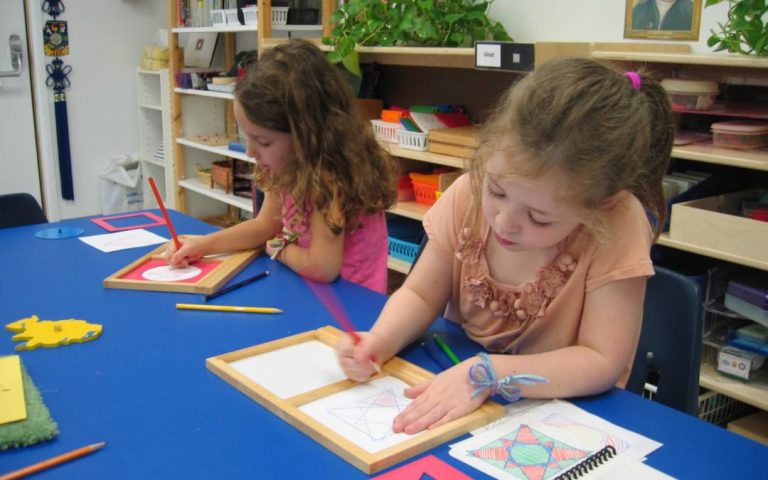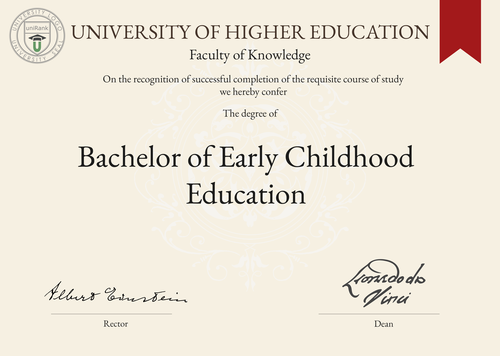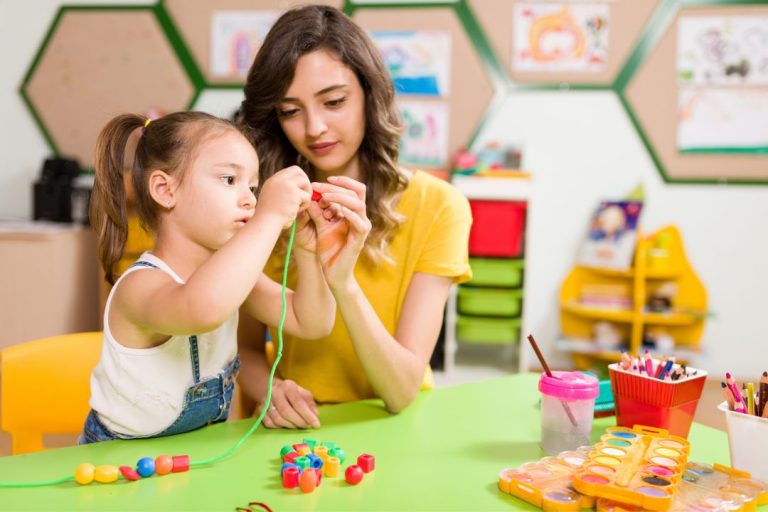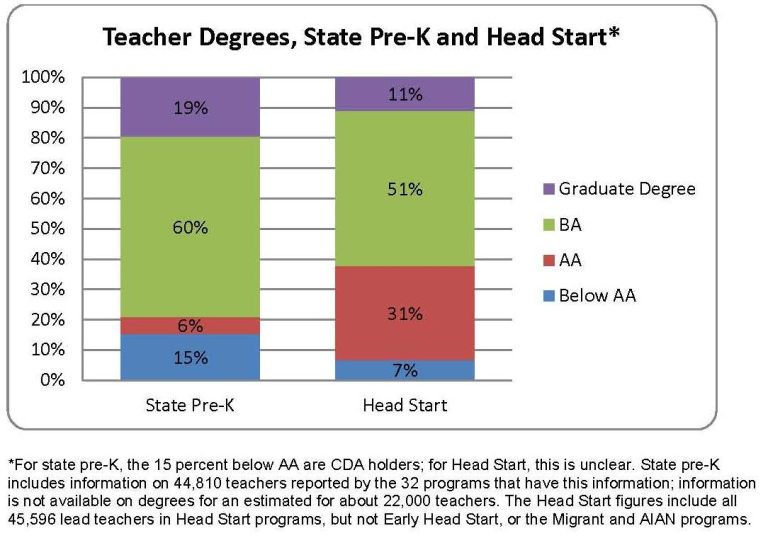What is Play in Early Childhood Education: The Ultimate Guide

Play in early childhood education is a crucial learning tool that promotes social, cognitive, and emotional development. It involves activities that are enjoyable, voluntary, and intrinsically motivated.
In early childhood education, play serves as a vehicle for young children to explore, experiment, and make sense of the world around them. Through play, children develop essential skills such as problem-solving, creativity, and communication. It also helps them build relationships, enhance their emotional intelligence, and boost their self-esteem.
Additionally, play fosters imagination, curiosity, and a love for learning. By incorporating play into educational settings, teachers can create engaging and enriching experiences that support children’s holistic development.

Credit: www.graduateprogram.org
The Importance Of Play In Early Childhood Education
In early childhood education, play is not just a form of entertainment; it is a crucial component of a child’s learning and development. The importance of play in early childhood education cannot be overstated, as it serves as a vital tool for children to explore, learn, and make sense of the world around them. Through play, children develop critical skills, enhance their creativity, and build essential social and emotional competencies.
Benefits Of Play-based Learning
Play-based learning offers numerous benefits for young children, including fostering their cognitive, physical, social, and emotional development. Children engage in hands-on experiences that stimulate their curiosity, problem-solving abilities, and decision-making skills. Through play, they develop their language, communication, and literacy skills as they interact with their peers and adults. Moreover, play-based learning promotes a positive attitude towards learning and enhances children’s motivation to explore and discover new concepts and ideas.
Role Of Play In Child Development
Play plays a pivotal role in shaping a child’s overall development. It contributes to the enhancement of their creativity and imagination, allowing them to express themselves and think outside the box. Furthermore, play facilitates the development of fine and gross motor skills, as children engage in various physical activities and movements. Socially, play enables children to learn cooperation, negotiation, and problem-solving as they interact with others in a playful environment. Emotionally, play helps children to regulate their feelings and develop resilience, as they encounter challenges and navigate through different play scenarios.
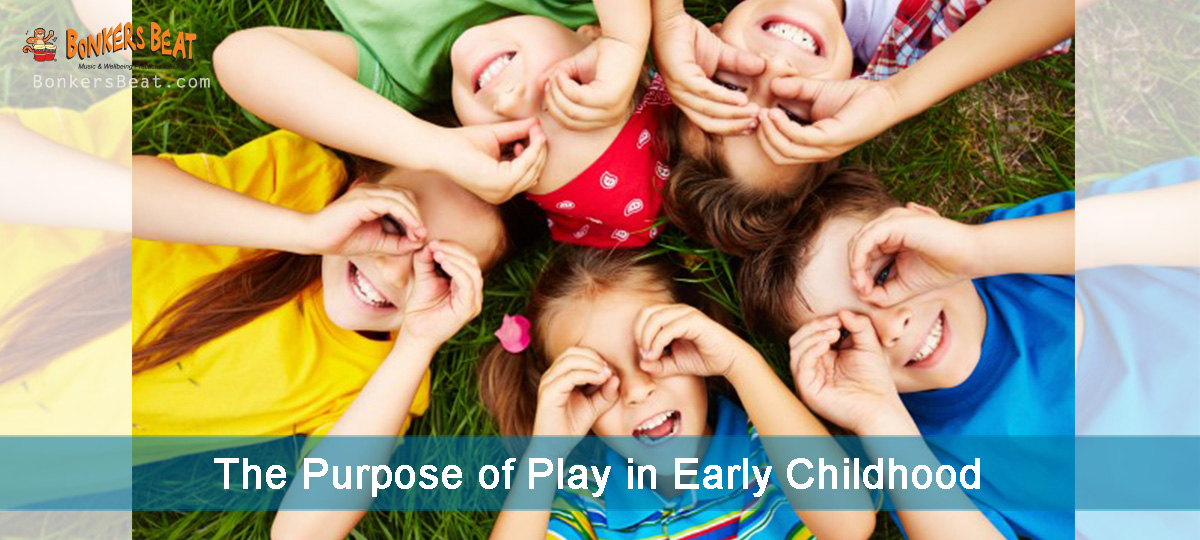
Credit: musicearlychildhoodpresenter.com
Types Of Play In Early Childhood Education
Understanding the different types of play in early childhood education is crucial for creating a holistic learning environment. Play is the primary way young children learn about the world around them, develop essential skills, and express themselves. By recognizing the various types of play, educators and parents can support children’s development in a well-rounded manner. Let’s explore the distinct categories of play that are integral to early childhood education.
Symbolic Play
Symbolic play, also known as pretend or imaginative play, involves children using objects, actions, or ideas to represent something else. Whether it’s pretending to be a doctor, cooking a meal in a toy kitchen, or creating a make-believe world with dolls and action figures, symbolic play allows children to exercise their creativity and expand their understanding of the world.
Physical Play
Physical play encompasses any activities that involve movement and exertion. This type of play includes running, jumping, climbing, dancing, and engaging in sports. Physical play not only promotes physical health and coordination but also enhances cognitive functions, social skills, and emotional well-being.
Constructive Play
Constructive play refers to activities where children manipulate objects to build, create, or design something. This can involve building with blocks, assembling puzzles, constructing with clay or playdough, and working with construction sets. Constructive play fosters problem-solving abilities, spatial awareness, and fine motor skills while encouraging children to think critically and imaginatively.
Implementing Play In Early Childhood Education
Play in early childhood education is essential for holistic development. It fosters creativity, problem-solving skills, and social interactions in young learners. Incorporating play-based activities creates a stimulating learning environment that supports children’s cognitive and emotional growth.
Setting Up A Play-based Environment
Incorporating Play Into Curriculum
The Role Of Teachers In Facilitating Play
In early childhood education, play is an essential aspect of children’s development. It serves as a vehicle for children to explore, learn, and make sense of the world around them. The role of teachers in facilitating play is crucial as they provide the guidance and support necessary for children to engage in meaningful and educational play experiences.
Observing And Guiding Play
Teachers play a vital role in observing and guiding play to ensure that it remains productive and beneficial for the children. By observing the children’s play, teachers can gain valuable insights into their interests, developmental progress, and areas where they may need additional support. This allows teachers to tailor their guidance and facilitate play experiences that are both enjoyable and educational.
Supporting Social Interactions
Another important aspect of the teacher’s role in facilitating play is supporting social interactions among children. Teachers can create an environment that encourages collaboration and communication by providing materials and activities that promote cooperative play. This helps children develop crucial social skills such as sharing, negotiation, and conflict resolution.
Challenges And Solutions In Promoting Play-based Learning
Addressing Time Constraints
Teachers often face challenges due to limited time for play-based learning.
- Scheduling dedicated play time can help prioritize play activities.
- Incorporating play into lesson plans ensures it is not overlooked.
- Balancing curriculum requirements with play needs creative time management.
Engaging Parents In Play Activities
Getting parents involved in play-based learning can enhance the child’s experience.
- Organize parent-child play sessions to promote collaboration.
- Share the benefits of play to increase parental support and understanding.
- Provide resources and ideas for play at home to encourage continuity.
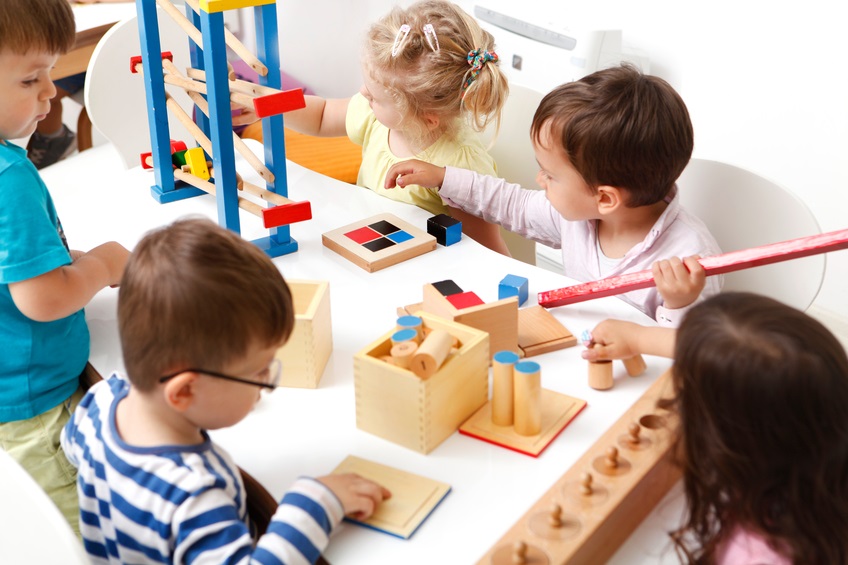
Credit: resilienteducator.com
Measuring The Impact Of Play On Learning Outcomes
Play in early childhood education is essential for holistic development. Measuring its impact on learning outcomes involves observing social, emotional, and cognitive growth. Through play, children enhance creativity, problem-solving skills, and build strong foundations for future academic success.
Play is a natural and instinctive activity for children. It is through play that children learn about the world around them and develop important skills such as problem-solving, creativity, and social interaction. However, when it comes to early childhood education, the importance of play is often overlooked or undervalued. This is where measuring the impact of play on learning outcomes becomes crucial.Assessment Strategies
Assessing the impact of play on learning outcomes can be a challenging task. However, there are several assessment strategies that can be used to measure the effectiveness of play-based learning. These strategies include:- Observation: Observing children during play and recording their behaviors and interactions can provide valuable insights into their learning outcomes.
- Questionnaires: Asking parents and teachers to complete questionnaires about children’s play behavior and learning outcomes can provide valuable data.
- Standardized Tests: Standardized tests can be used to measure children’s cognitive, social, and emotional development. These tests can be used to compare the learning outcomes of children who engage in play-based learning with those who do not.
Research Findings
Research has shown that play-based learning can have a significant impact on learning outcomes in early childhood education. A study conducted by the American Psychological Association found that play-based learning can improve children’s language development, problem-solving skills, and social interaction. Another study conducted by the University of Cambridge found that children who engage in play-based learning have better academic outcomes than those who do not. In conclusion, measuring the impact of play on learning outcomes is essential to understanding the benefits of play-based learning in early childhood education. Assessment strategies such as observation, questionnaires, and standardized tests can provide valuable insights into the effectiveness of play-based learning. Research findings have shown that play-based learning can have a significant impact on children’s cognitive, social, and emotional development.Incorporating Technology In Play-based Learning
Integrating technology in play-based learning can enhance children’s educational experiences.
Benefits Of Tech-integrated Play
Tech-integrated play promotes creativity, problem-solving, and digital literacy skills.
- Encourages interactive learning
- Enhances critical thinking
- Fosters collaboration
balancing Screen Time
Ensuring a healthy balance between tech use and traditional play is crucial.
- Limit screen time
- Encourage outdoor activities
- Promote hands-on experiences
Conclusion And Future Trends
In conclusion, the future of play in education is a promising one. As educators and researchers continue to recognize the vital role of play in early childhood education, we can expect to see continued advocacy for play-based learning. This will pave the way for innovative approaches that integrate play into the curriculum, ensuring that children have the opportunity to learn through exploration, creativity, and hands-on experiences.
The Future Of Play In Education
The future of play in education holds immense potential for transforming the way children learn and develop. As we move forward, it is crucial to prioritize play as a fundamental aspect of early childhood education. This will involve integrating play-based activities into formal learning settings, leveraging technology to enhance play experiences, and promoting the benefits of play in cognitive, social, and emotional development.
Continued Advocacy For Play-based Learning
Advocacy for play-based learning will remain a priority in the field of early childhood education. Educators, policymakers, and parents must continue to champion the importance of play in fostering holistic development in children. This will involve advocating for increased resources and support for play-based learning initiatives, promoting professional development opportunities for educators, and collaborating with stakeholders to ensure that play remains at the forefront of educational practices.
Frequently Asked Questions
What Is The Concept Of Play?
The concept of play refers to engaging in activities for enjoyment, recreation, and learning. It involves voluntary participation and can take various forms such as physical, social, or imaginative play. Play is essential for the development of cognitive, emotional, and social skills in children and adults alike.
What Is Play Theory In Early Childhood Education?
Play theory in early childhood education emphasizes the importance of play for learning and development. It suggests that children learn best through play-based activities that are engaging and hands-on. This approach supports social, emotional, and cognitive growth in young learners.
What Is Meaningful Play In Early Childhood?
Meaningful play in early childhood refers to play that is purposeful, engaging, and relevant to a child’s experiences. It helps promote learning and development by allowing children to explore, experiment, and make connections with their environment. Through meaningful play, children develop cognitive, social, emotional, and physical skills that prepare them for future success.
What Is Your Own Definition Of Play?
Play is a form of joyful activity or recreation, essential for learning and development in individuals.
Conclusion
In essence, play in early childhood education is far more than just fun and games. It serves as a critical vehicle for children to explore, learn, and develop essential skills. By understanding the significance of play, educators and parents can create an enriching environment that nurtures the holistic growth of young minds.
Embracing the power of play is key to fostering lifelong learning and overall well-being.
Lorem Ipsum is simply dummy text of the printing and typesetting industry. Lorem Ipsum has been the industry’s standard dummy text ever since the 1500s, when an unknown printer took a galley of type and scrambled it to make a type specimen book.

